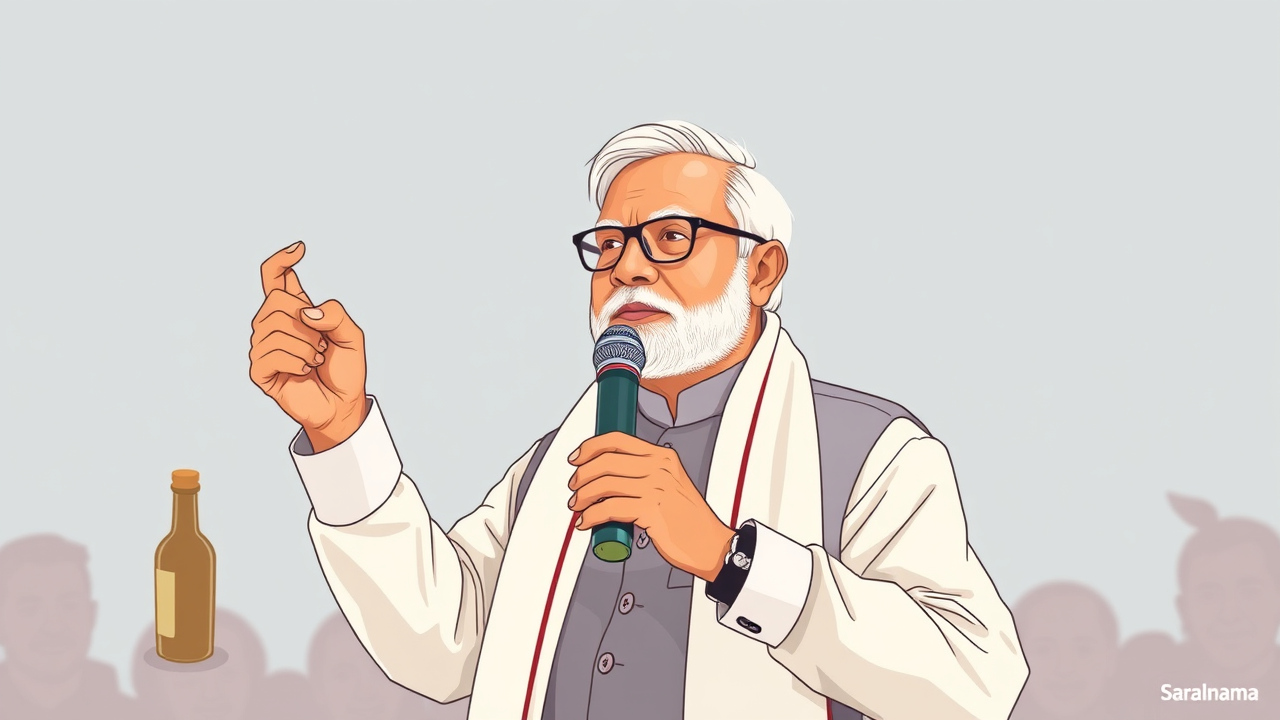Bihar's prohibition law, enacted in April 2016 under Chief Minister Nitish Kumar, has become a contentious issue in the current Assembly elections. While opposition parties openly promise to review or abolish the ban, the ruling JD(U) remains silent on the matter. The Mahagathbandhan manifesto pledges to reconsider the Act and lift restrictions on toddy, offering immediate relief to the poor jailed under this law. Jan Suraaj's Prashant Kishor has vowed to end prohibition within minutes of taking power. Data reveals that over 12.79 lakh arrests occurred under this law in nine years, with more than 85 percent coming from Scheduled Castes, EBCs, and OBCs. The ban initially aimed to strengthen Nitish's image as a reformer and resonated with rural women facing domestic violence. However, enforcement challenges, hooch tragedies claiming over 300 lives, and overcrowded courts have exposed its failures. The law has also disrupted traditional livelihoods, particularly the toddy trade. Despite a 2024 Lancet report claiming 21 lakh women experienced reduced domestic violence, political gains for JD(U) remain unclear. The party's seat count dropped from 71 to 43 in 2020, and its fortunes now depend heavily on the BJP alliance.

Nitish Kumar's Political Journey with the Liquor Ban
The prohibition Act was introduced by Nitish Kumar in 2016 when he led the Mahagathbandhan government alongside Lalu Prasad. After their sweeping 2015 victory, Nitish sought a national platform to challenge Narendra Modi. Prohibition became that plank, aligning with his good governance image and pro-women stance. Ironically, Nitish had liberalized liquor policy after becoming CM in 2005, boosting state revenues from Rs 500 crore to over Rs 5,000 crore by 2015. The RJD, holding 80 seats against JD(U)'s 71, opposed the ban due to its OBC Yadav base's liquor trade connections. Nevertheless, Nitish pushed the resolution through with BJP support. A partial ban started in April 2016, followed by a total ban on April 6, 2016, invoking Mahatma Gandhi's anti-liquor stance.
Opposition Promises and Election Strategy
The Mahagathbandhan manifesto released on Tuesday promises to review the prohibition Act and remove the ban on tari (toddy) if elected. Tejashwi Yadav, the CM candidate, highlighted livelihood losses, noting communities in the toddy business for generations now lack income sources. The manifesto pledges immediate relief for Dalits and poor people jailed for violating the law. CPI (M-L) Liberation's Dipankar Bhattacharya led the coalition's stance on reviewing the ban. Prashant Kishor of Jan Suraaj has been the most vocal, promising to abolish prohibition within 15 minutes of assuming power. He argues the law is unenforceable and has created an illicit economy worth Rs 20,000 crore annually. RJD spokesperson Mrityunjay Tiwari noted prohibition has become a burden for the NDA, as Nitish can neither fully enforce nor lift the ban.
Implementation Failures and Social Impact
Enforcing the prohibition law has proven extremely difficult. Then Chief Justice N V Ramana remarked in December 2021 that the Bihar liquor law lacked administrative foresight, causing court congestion. Multiple amendments followed, including waiving arrests for first-time drinkers and imposing community fines. Hooch tragedies have killed over 300 people since 2016. Nitish initially suggested victims deserved their fate but later announced Rs 4 lakh compensation in April 2023. A 2024 Lancet report claimed 21 lakh women experienced zero domestic violence post-ban, a significant change in a state that accounted for 40 percent of such cases during the 1990s. However, over 85 percent of those arrested belong to marginalized communities, a fact the NDA prefers to avoid highlighting during elections.
Source: Link
